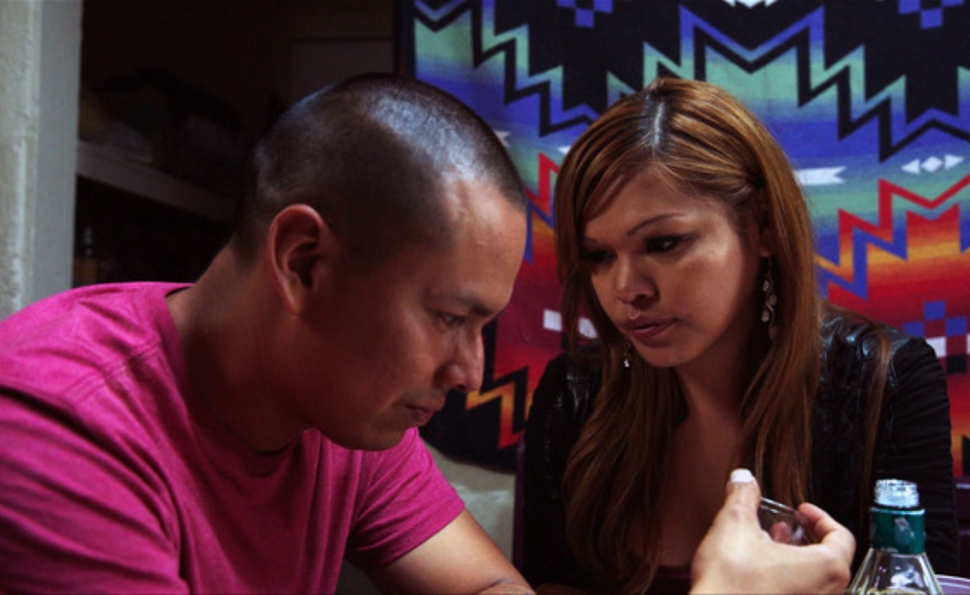Sydney Freeland named her debut film Drunktown’s Finest after a 20/20 report on her hometown of Gallup, New Mexico gave it that unfortunate moniker. Her film shows a different side to the state’s Navajo reservations, however, one that brims with a variety of voices, problems, and personalities. There’s Sick Boy (Jeremiah Bitsui), the most troubled character, a recalcitrant young man four days shy of starting military service, who can’t pull it together to be a family man for his young sister and pregnant wife. College-bound Nizhoni (Morning Star Wilson) feels something is missing from her complacent life with her white adoptive parents, and ignores their advice to stay off the reservation in order to track down her real family. Trans woman Felixia (Carmen Moore) comes from the most traditional family of the three leads, yet her grandparents’ complete love and acceptance isn’t enough to stop her from selling her body.
Drunktown’s Finest fleshes out these individual stories in slow-simmering arcs before weaving them together, a wise strategy that demonstrates Freeland’s understanding of organic storytelling. Yet elsewhere, the film mostly falls flat. For all its cultural specificity and the sheer novelty of seeing underrepresented people onscreen,Drunktown falls prey to the kind of predictable ham-fisted dialogue that is more often associated with network television than film. It’s underscored by the film’s ambitious reach, which uses subplots instead of a main storyline to connect the three characters. Freeland’s approach requires a lot of episodic scene-building to properly realize the different stories, taking them tediously from point A to point Z.
The details of the stories themselves are frequently more interesting than the way they’re presented. The dialogue-heavy scenes have a perfunctory, televisual quality, and the script itself isn’t nearly as sophisticated as it should be. Nizhoni, for example, suffers from insomnia due to vivid dreams, but her mother, a doctor, is hesitant to keep prescribing her a sleeping aid, because of its addictive properties. Later, it’s revealed that she’s concerned because Nizhoni comes from an alcoholic family, though the film lets significant details like these slip through the cracks instead of exploiting their dramatic or thematic potential. Nizhoni’s adopted parents constantly warn her about the dangers of visiting the reservation, but that white noise overwhelms the more compelling abstraction of the dreams themselves, which have a more intuitive, prophetic quality.
Sick Boy’s predicament is even less sure-footed: Freeland doesn’t explore the reasons why he makes one bad decision after another, and Bitsui’s natural charisma runs against his character’s odd compulsion to repeat a criminal cycle that ultimately robs him of his future potential. When Felixia’s grandfather (Richard Ray Whitman)—a medicine man who’s the most fascinating character and actor in the film—tells Sick Boy that real warriors know when to retreat, it inspires the young man to suddenly turn over a new leaf, an unbelievable about-face that reduces the powerful message behind the old man’s words.
Drunktown’s Finest oscillates between servicing banal plot machinations and the beautiful, symbolic simplicity of the culture it’s representing. It’s no wonder, then, that the film’s hopeful conclusion, hinting at a fresh start for its tormented lead characters, feels only halfway cathartic.

